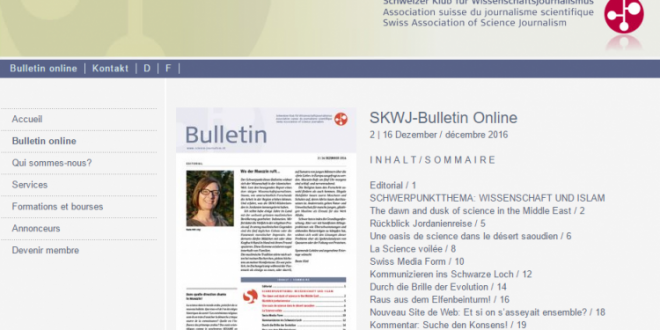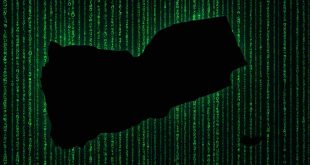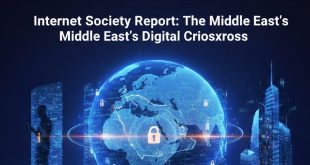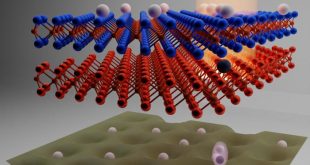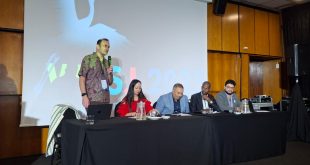Mohammed Yahia, who is the Executive Editor at Nature Research (Middle-Eastern region) recently shared his thoughts on the development of science journalism in the Middle-Eastern region. The text below was originally published in the bulletin No2/2016 of the Swiss Association of Science Journalism.
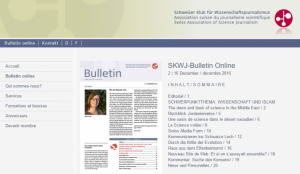
In the summer of 2011, I shared the stage during the closing plenary of the World Conference of Science Journalists with three young journalists from Egypt and Tunisia to talk about the Arab Spring. Fresh out of a revolution that toppled the long-time autocrat who had ruled Egypt since the year I was born, I spoke of the future of science research and science journalism in the Middle East, and how important it will be as we rebuild our countries that have suffered for decades under unfit rulers.
The room was vibrant with hope and optimism, and we were met with a standing ovation from the hundreds of science journalists who had gathered from around the world in Doha, Qatar for the event. Five years later, however, things have changed drastically from that vision.
Science journalism went through a honeymoon period after the revolution, where freedoms rose sharply and journalists became watchdogs, analyzing and criticizing the performance of policymakers. Issues of water, the environment, sustainability and even the economy were being recognized as science issues.
“With the violence and the reduced freedoms in the Arab world now, science journalists – like other specialized journalists – suffer from a lack of transparency and intentional withholding of information,” says Bothaina Osama, the MENA regional editor for SciDev.Net. “It has become so bad that some journalists censor themselves from writing certain things in fear it may insult or anger authorities.”
Science research has also gone through a similar arc. Right after the start of the revolutions, countries began turning to science as a tool to solve their problems and boost their economies. Research budgets often doubled, and the rise in academic freedom inspired hundred of expatriate researchers to return home.
STRUGGLING RESEARCH
By the second year, things changed sharply. “The economic crises led to a decrease in research budgets again, and the ongoing political strife caused a change in priorities and the general decrease in all freedoms caused a decrease, or even a recess, of academic freedom,” says Osama. “This all led to research falling back into its state of stagnancy and poor funding from before the revolutions.”
In the ancient city of Aleppo in Syria, everyday life has become an ongoing challenge. Since the start of the civil war, different factions have controlled the city. It has continuously suffered from bombings, which have sharply increased in frequency and severity over the past few weeks. For the students and professors of the University of Aleppo, the act of going to and back from campus is life-threatening.
“Fear is the one constant in Aleppo due to the indiscriminate bombing,” says Ahmad Alsayed, an assistant professor of mechanical engineering at the university. “Everyone who steps out of his home or even stays at his home in Aleppo is in danger of getting killed all the time.” Alsayed now makes extensive use of his Facebook page to communicate exercises and tests for the students and to schedule classes when times are unsafe.
The bombing has not spared the university campus itself either. In one of the worst attacks, several rockets hit one of the engineering buildings in January 2013, creating chaos as people ran for safety. Over 82 people were killed that day, some of them students, others refugees who had sought shelter at the university in hope of finding safety.
Thousands of researchers and faculty have fled the city in fear for their and their families’ lives. Scientific research ground to a halt, with the few faculty remaining focusing on teaching, stretched thin to cover for their colleagues who had fled. Some departments don’t even have the minimum number to teach their students. Many students, on the other hand, are waiting for the first chance to leave in hopes of a better future.
“Education continues in Aleppo, but not with the same quality as before the war. But if things continue this way much longer, the next generation will suffer a real catastrophe,” says Alsayed.
Before the start of the war, Syria was home to an important research facility for sustainable agriculture and development: the International Center for Agricultural Research in the Dry Areas (ICARDA). It hosted one of the most important plant gene banks in the world and was home to a priceless collection of genetic material that had been used to produce drought or disease resistant varieties of important crops.
In 2012, ICARDA had to close its vast headquarters in Aleppo and move to Lebanon after struggling with looters and attacks for months. The researchers often endangered their lives collecting and duplicating the samples from the gene bank to transfer them to the Svalbard Global Seed Vault in Norway, to protect these hundreds of thousands of samples collected over decades of active work. This contributed a loss of science research that Syria desperately needed as it struggles with one if its worst droughts ever, explains Osama.
THE RISE OF THE GULF
By contrast, research in the neighboring Gulf states, which have been spared most of the winds of the Arab Spring, has flourished over the past few years. With generous funding from the royal families ruling Saudi Arabia, Qatar and the United Arab Emirates (UAE), new universities and offshore campuses of large Western universities have grown in a short time, with a vision from these countries to shift away from their strong dependence on oil to a knowledge economy.
In Saudi Arabia in particular, the King Abdullah University of Science and Technology (KAUST) has given the country a large boost in international standing. In the Nature Index, a metric that measures the science published in a selected group of high impact journals across different disciplines, Saudi Arabia is only second to Israel in the Western Asia region, bypassing Turkey and Iran who have long been regional powerhouses.
KAUST is responsible for 73% of the country’s score in the index, even though it has only been around since 2009. A generous endowment from the late king has allowed the university to furnish its labs with the most cutting-edge equipment, attracting hundreds of researchers from the best universities around the world to pursue their research here.
Qatar has managed to attract several American universities to open offshore campuses, including the prestigious Weill Cornell Medical College. Just across the Persian/Arabian Gulf, the UAE has launched an ambitious space program, aiming to send an unmanned probe to Mars by 2021.
Research in these states, however, is starting to struggle under the weight of falling oil prices globally. Money is not as readily available as before for scientific endeavors. “The biggest challenge to the sustainability of these efforts remains to build strong local calibers and retaining them,” adds Osama.
Of the countries that had undergone political upheaval, Tunisia remains the brightest spot in the region today. It had struggled on the road to democracy through several changing governments and even political assassinations but remained on track. The constitution written after the revolution there upholds freedom of speech and explicitly mandates the state to support science research and development.
The years since the start of the so-called Arab Spring have brought many new tough realities to one of the most turbulent regions of the world, but academics and journalists should remain the spearhead driving change. With the rapidly deteriorating situation in the region, however, it remains unclear how long they can continue to play that role.
Article by Mohammed Yahia who is the Executive Editor at Nature Research, part of Springer Nature, for the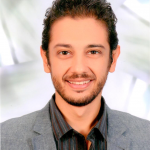 Middle-Eastern region. He co-founded the Arab Science Journalists Association (ASJA) and is Vice-President of the World Federation of Science Journalists (WFSJ). Mohammed lives in Cairo, Egypt.
Middle-Eastern region. He co-founded the Arab Science Journalists Association (ASJA) and is Vice-President of the World Federation of Science Journalists (WFSJ). Mohammed lives in Cairo, Egypt.
December 2016
source : wfsj
 الشبكة اليمنية للعلوم والبيئة (يمن ساينس) موقع يهتم بأخبار العلوم والتكنولوجيا والصحة والبيئة والسكان
الشبكة اليمنية للعلوم والبيئة (يمن ساينس) موقع يهتم بأخبار العلوم والتكنولوجيا والصحة والبيئة والسكان
